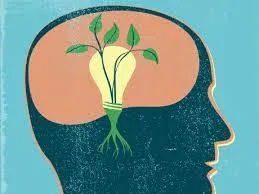The Social Communication Blog
By Linda Boverman

We can Make our Brains Smarter–at any Age

“Without brain health, you do not have health.”
Sandra Bond Chapman, Ph.D.
Sandra Bond Chapman’s book, Make Your Brain Smarter, (Simon & Schuster, 2013), is a must read for anyone interested in brain health, how we maintain it throughout life, and how to enhance it in ourselves as well as promote it in our children.
Chapman, the director of the Center for BrainHealth and a professor at the University of Texas at Dallas, has spent decades researching brain malleability and how different parts of the brain grow or shrink depending on how we use it. Though she is far from the only researcher to write about it, even with some hard science, her manner of explaining brain functioning makes the information accessible to non-scientific folks like myself.
She has helped me better understand my brain and what I can do to develop and maintain it.

Chapman focuses on three main areas:
The FRONTAL LOBE, the command center for higher order thinking or our “seat of wisdom”, and why it is so important.
NEUROPLASTICITY, the brain’s ability to grow, change, and make connections, and how it functions.
What we must and can do to build a healthy frontal lobe that will support mental independence and wellness throughout life.
The rapid advances in medical technology in recent years have facilitated her work. She states that neuroscientists have “learned more about the brain in the past 10 years than in all previous years combined”.
Some of these findings debunk a number of science’s most cherished beliefs and theories, which relieves me immensely about my own brain function.

The belief that our intelligence is innate and unchangeable is NOT true.
“The brain continues to grow and change throughout life”.
Memory and traditional I.Q. tests do NOT determine brain health, function, or intelligence.
“The ability to succeed at every stage in life, whether in school, in the workplace, in retirement, or in marriage, largely depends on fluid intelligence* rather than on how much you know or what your IQ score was at one point.”
It is NOT inevitable that our ability to think deeply declines with age.
“Cognitive decline… is due, in large part, to your behavior…. [It happens] as a result of non-activity….Complex thinking keeps neurons healthier and more fit… just like physical exercise keeps your muscles more fit. Brain neurons live longer when learning is taking place.”
Chapman states that in these ever-changing, fast paced times, much of what we teach our children will likely be outdated in ten years. Consequently, to function successfully in this world, we need to acquire, manipulate, and apply vast amounts of information and think futuristically. To do this, we need a robust frontal lobe.
She explains further by saying that consciously engaging it when “ faced with new situations, context ideas, or issues” strengthens our thinking.
Her ultimate goal is to “match our brain health span with our lifespan”.

Some specific strategies include:
Work at seeing things from different perspectives
Be open to new technology
Use creative thinking to convey personal beliefs
Avoid multi-tasking–it doesn’t really exist and interfers with thinking– work sequentially
Filter out extraneous information–be selective with what you store in your brain
Focus on concepts and big strategic thinking versus remembering minute details
Allow your brain to rest
Attend to a core task for 15 minutes or more–avoiding interruptions promotes deep thinking
Chapman punctuates this information with success stories such as an ADHD student improving using the strategies or a stroke patient returning to work as a valuable asset in his much cherished business despite a significant memory loss.
As parents, educators, and human beings, knowing about brain health, how to enhance it and teaching it to our children is invaluable. Simply put, if we do this we will be happier.

*Fluid intelligence is the ability to use what we know and apply the knowledge to problem solving, abstract reasoning, planning, and making inferences. It is dynamic, flexible, curious, and creative.
If you want to be inspired by some folks who have energized frontal lobes, feel free to take a look at Old Masters at the Top of their Game.
For readings on related subjects, check Happiness and Mindsite and The Fight or Flight Response
“How we communicate affects our joy of being alive.” – Linda

Copyright 2023 . All rights reserved
lindaboverman@gmail.com
(213) 804-7750

